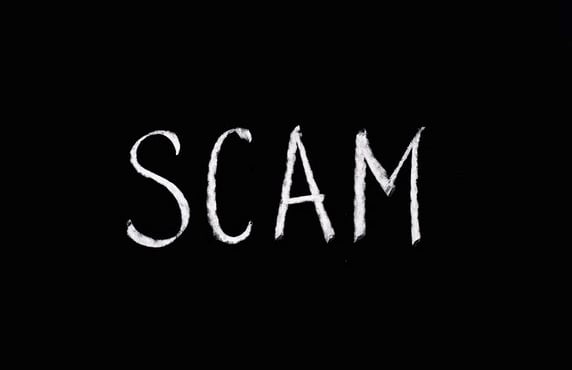3 min read
Theft of Client Funds and the Interplay Between Bad Actors and Innocent Insured Coverage
A question that occasionally comes up concerns insurance coverage for the loss of client funds. This is a particularly troublesome concern due to...
We've crafted solutions tailored to your firm
The world of insurance for law firms can be confusing, and difficult to navigate. We've created this glossary because these common insurance terms should be easy to understand.
2 min read
 Mark Bassingthwaighte, Risk Manager
:
May 18, 2022 12:00:00 AM
Mark Bassingthwaighte, Risk Manager
:
May 18, 2022 12:00:00 AM

Counterfeit checks are more of a problem than most realize. Scam artists create millions of these checks each year and while there are a wide variety of ways such checks are put to use; the focus of this post is on one where the scam artist uses counterfeit law firm trust account checks.
Why would a scam artist target a law firm trust account?
Because these accounts often hold substantial funds, making them an attractive target. Scammers also hope that a theft of funds from this type of account will go unnoticed long enough that the scammer will have sufficient time to get their hands on the money and run.
How does the scam work?
Here’s the gist of it. A scam artist will either clone an actual trust account check or — using accurate trust account banking information, — create a counterfeit check. Either way, the end result is the creation of a fake trust account check that is very difficult to distinguish from the real thing because advanced design and printing technologies were used to create it. The scammer will then deposit the fake check and withdraw the funds once the funds are made available.
Why should I worry about this type of scam?
If you are thinking, but wait, if my bank honors a counterfeit check, wouldn’t the responsibility for restoring the stolen funds fall on the bank? You would be correct; however, that doesn’t mean there’s no impact on your firm. Before the bank takes that step, an internal investigation will need to be completed. In the interim, your firm is left having to deal with fact that there is a shortfall in the trust account. Your firm will need to replenish the trust account to cover any outstanding checks that may otherwise bounce. Depending upon the amount of the loss, your firm may need to come up with a significant amount of money. This begs the question. Should this ever happen, will your firm have the financial wherewithal to do so?
Is there anything I can do to prevent this from happening?
There is. Start by doing what you can to keep your trust account banking information as private as possible. For example, ask clients to refrain from posting copies of settlement checks on social media.
Second, don’t make it easy. One of the ways scammers try to get ahold of original checks is by stealing mail out of mailboxes. This is why it’s important to take all mail that contains a trust account check directly to the post office or to only deposit it in trusted US mail drop boxes. If any mail recipient doesn’t have a secure mailbox at their location, consider an alternative method of delivery.
Make sure your trust account checks have built in security features. Think water mark, safety hologram, invisible fluorescent fibers, and the like. Also monitor your trust account activity daily or weekly, depending upon how active this account is. The sooner any account discrepancy can be identified, the better.
Finally, consider enrolling in your bank’s positive pay program. By giving your bank the specific details of every trust account check you write, your bank can then verify that the information you provided matches the information on any trust account check presented to the bank for processing. That’s good stuff if you ask me!
Since 1998, Mark Bassingthwaighte, Esq. has been a Risk Manager with ALPS, an attorney’s professional liability insurance carrier. In his tenure with the company, Mr. Bassingthwaighte has conducted over 1200 law firm risk management assessment visits, presented over 600 continuing legal education seminars throughout the United States, and written extensively on risk management, ethics, and technology. Mr. Bassingthwaighte is a member of the State Bar of Montana as well as the American Bar Association where he currently sits on the ABA Center for Professional Responsibility’s Conference Planning Committee. He received his J.D. from Drake University Law School.

3 min read
A question that occasionally comes up concerns insurance coverage for the loss of client funds. This is a particularly troublesome concern due to...

4 min read
The number of times I’ve observed or heard about a problematic nonverbal interaction with a client (to which the involved lawyer or staff member was...

5 min read
Back in the 80’s, Wendy’s aired a commercial that has remained a personal favorite and can still bring a smile to my face to this day. Here’s the...